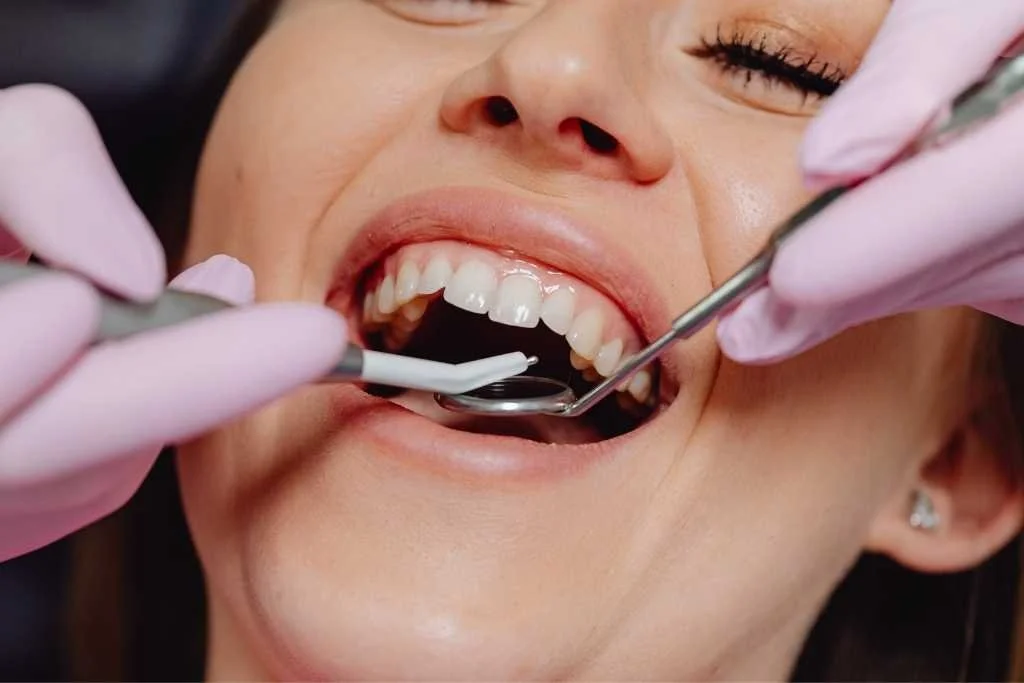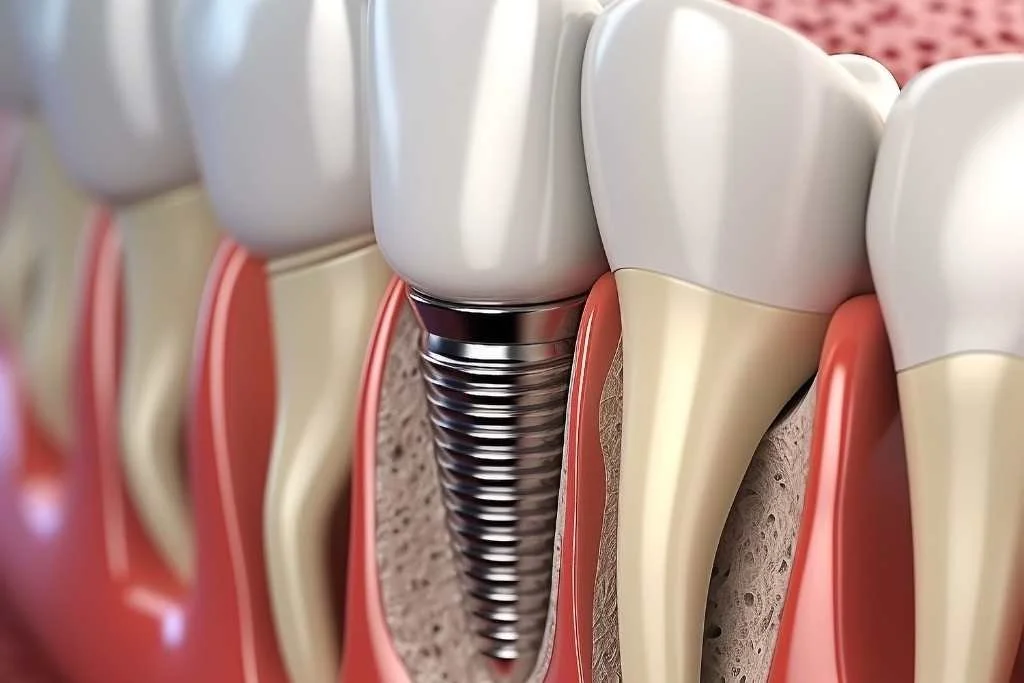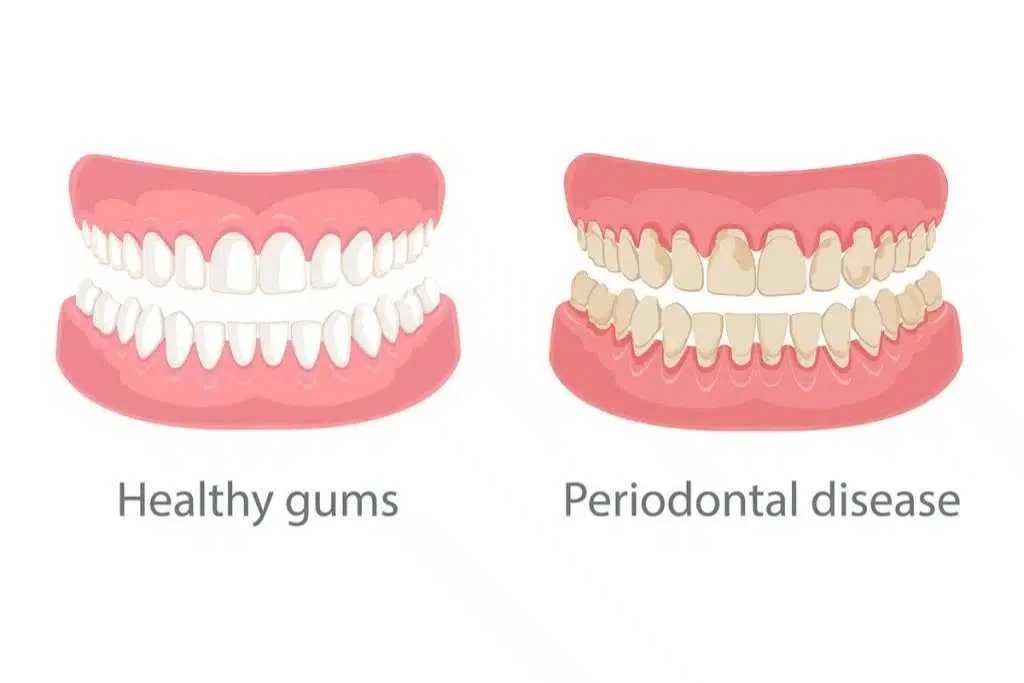Expert Insights on Gum Health, Dental Implants, and Periodontal Care in NYC
Here you’ll find expert articles on topics like gum disease prevention, dental implant complications, non-surgical periodontal therapy, and oral health maintenance. Whether you're looking for tips to improve your daily dental routine or in-depth insights into advanced periodontal treatments, our blog is designed to help patients make informed decisions and maintain healthy smiles for life.
Stop Gum Disease With Scaling and Root Planing Treatment
Scaling and root planing, also known as deep cleaning, is one of the most effective ways to stop gum disease early. This treatment removes plaque below the gumline, reduces inflammation, and helps prevent the need for surgery. Learn when SRP is needed and how it protects long-term oral health.
Can Natural Teeth Be Saved Instead of Getting Implants?
When a tooth is damaged or infected, many patients ask whether it’s better to replace it with an implant or try to save it. Dr. Scott Froum explains why natural teeth often outperform implants - and how modern regenerative treatments can rescue teeth once thought hopeless.
Dr. Scott H. Froum Named Best Periodontist in New York City for the Second Year in a Row
For the second year in a row, Dr. Scott H. Froum has been named the Best Periodontist in New York City by The City’s Best awards. Based in Midtown East, Dr. Froum is recognized for his expertise in gum disease treatment, dental implants, and laser therapy, delivering trusted, patient-centred care.
The Top Five Causes of Gingival Hyperplasia
Gingival hyperplasia, or gum overgrowth, can result from medications, medical conditions, hormones, orthodontics, or poor oral hygiene. Understanding these causes helps prevent complications and guides effective treatment. Learn how early diagnosis and modern laser therapy can support gum health and maintain your natural smile.
What Is a Periodontist? Understanding Gum and Bone Specialists in NYC
A periodontist is a dental specialist focused on the gums and bone that support your teeth. They treat gum disease, recession, and bone loss using advanced techniques such as scaling, root planing, grafting, and laser therapy to restore oral health and protect your natural smile.
Saving Your Natural Teeth vs. Dental Implants: Why Teeth Are Built to Last
Natural teeth are biologically stronger and more resilient than dental implants. This blog explains why teeth resist infection better, why regeneration is more predictable around teeth, and when implants are useful. Explore expert treatment options in New York City to protect your teeth and gums.
Who Is a Good Candidate for Gum Grafting?
Gum grafting helps treat receding gums, exposed roots, and tooth sensitivity while improving smile aesthetics. Discover the top reasons patients need gum grafting, how it protects teeth and gums, and when to see a board-certified periodontist in New York City for advanced gum care.
Laser Therapy: Saving the So-Called Hopeless Tooth
Many people are told they have a hopeless tooth, often meaning severe bone loss and extraction as the only option. But modern laser therapy offers new hope. Dental lasers can clean deep infection, remove diseased tissue, and stimulate healing, giving once ‘unsavable’ teeth a second chance.
GERD and Halitosis: How Acid Reflux Causes Bad Breath
Gastroesophageal Reflux Disease (GERD) and bad breath are two different health issues. However, they are more connected than many people think. GERD, or acid reflux, happens when stomach acid and food go back into the esophagus. This can cause heartburn, trouble swallowing, regurgitation, and a bad taste in the mouth.
How to Prevent Gum Disease
Preventing gum disease is one of the most effective ways to preserve long-term oral health and avoid costly, invasive treatments later. In this article, you'll learn the proven habits and lifestyle changes that can significantly reduce your risk of developing gum disease—backed by research and clinical best practices. From oral hygiene techniques to nutrition and professional care, we break down what you can do today to protect your gums and maintain a healthy, lasting smile.
Sweet Trouble Lurking in Your Mouth: Why Your Sugar Habit Could Be Wrecking Your Gums
Sugar may be a common part of many diets, but its impact on your oral health—especially your gums—is often overlooked. In this article, we explore how excessive sugar intake contributes to gum disease by fueling harmful bacteria, increasing inflammation, and accelerating tissue breakdown. Learn what the science says about sugar's effects on periodontal health and discover actionable steps you can take to reduce your risk and protect your smile.
Improving Gum Health Within Your Daily Dental Routine
Keeping your gums healthy is just as important as keeping your teeth clean. While daily brushing and flossing are often emphasized for cavity prevention, a consistent routine focused on gum care can significantly reduce your risk of gum disease. In this article, we share practical ways to improve gum health through small changes in your daily dental routine.
4 Dangers of Leaving Periodontal Disease Untreated
Untreated gum disease isn’t just an oral health issue—it can lead to permanent damage affecting your teeth, jaw, and even your overall well-being. In this article, we’ll explore the top four dangers of leaving periodontal disease untreated, how these complications develop over time, and what you can do to stop progression before it’s too late.
Pros and Cons of Dental Implants
Dental implants are widely considered the gold standard in tooth replacement—but are they the right choice for everyone? In this article, we break down the key pros and cons of dental implants, helping you understand how they function, what makes them a superior option for many patients, and what limitations to consider before committing to treatment.
Benefits of Choosing a Periodontist for Dental Implant Surgery
When it comes to replacing missing teeth with dental implants, choosing the right provider can significantly impact your outcome. While many dental professionals offer implant placement, periodontists are uniquely trained in the supporting structures of the teeth—giving them specialized expertise in implant procedures. In this article, we’ll explore the advantages of selecting a periodontist for dental implant surgery and why this choice may lead to more predictable, long-lasting results.
How Quickly Can Signs of Gingivitis Turn Into Periodontitis?
Gingivitis is the earliest warning sign that your gums may be under attack—but if left untreated, it can quickly progress into periodontitis, a more serious condition that causes permanent damage to the bone and tissue supporting your teeth. In this article, we explore how gingivitis develops, the timeline of progression to periodontitis, and what you can do to stop gum disease in its tracks with early intervention and proper care.
How to Select the Best Periodontist Near Me
Finding the right periodontist is essential for maintaining the health of your gums, bone, and dental implants—but with so many options available, knowing how to choose can feel overwhelming. Whether you’ve been referred by your dentist or are searching on your own, this article outlines the key qualifications, credentials, and qualities to look for when selecting the best periodontist near you. From education and experience to technology and patient care, here’s how to make an informed choice for your oral health.
What Does a Periodontist Do?
A healthy smile depends on more than just your teeth—your gums, jawbone, and connective tissues all play a vital role in long-term oral health. That’s where a periodontist comes in. In this article, we explain what periodontists do, the types of treatments they provide, and when you might need to see one. Whether you're dealing with gum disease, considering dental implants, or need specialized care for the supporting structures of your teeth, understanding the role of a periodontist is the first step toward comprehensive oral care.
How Long Do Dental Implants Last?
Dental implants are widely regarded as the gold standard for replacing missing teeth—but just how long do they last, and how do they compare to other options like dental bridges? In this article, we break down the components of a dental implant, explore its average lifespan, and explain why implants are a long-term investment in both your oral health and overall well-being. If you're considering tooth replacement, this guide will help you make an informed decision.
5 Signs You Have Gum Disease
Gum disease is a progressive condition that often develops quietly, without pain, until significant damage has occurred. Recognizing the early signs is essential to prevent tooth loss and protect your oral and overall health. In this article, we highlight the top five signs that may indicate you have gum disease and explain what steps to take if you notice any of these symptoms—along with the treatment options available to help you restore healthy gums.





















